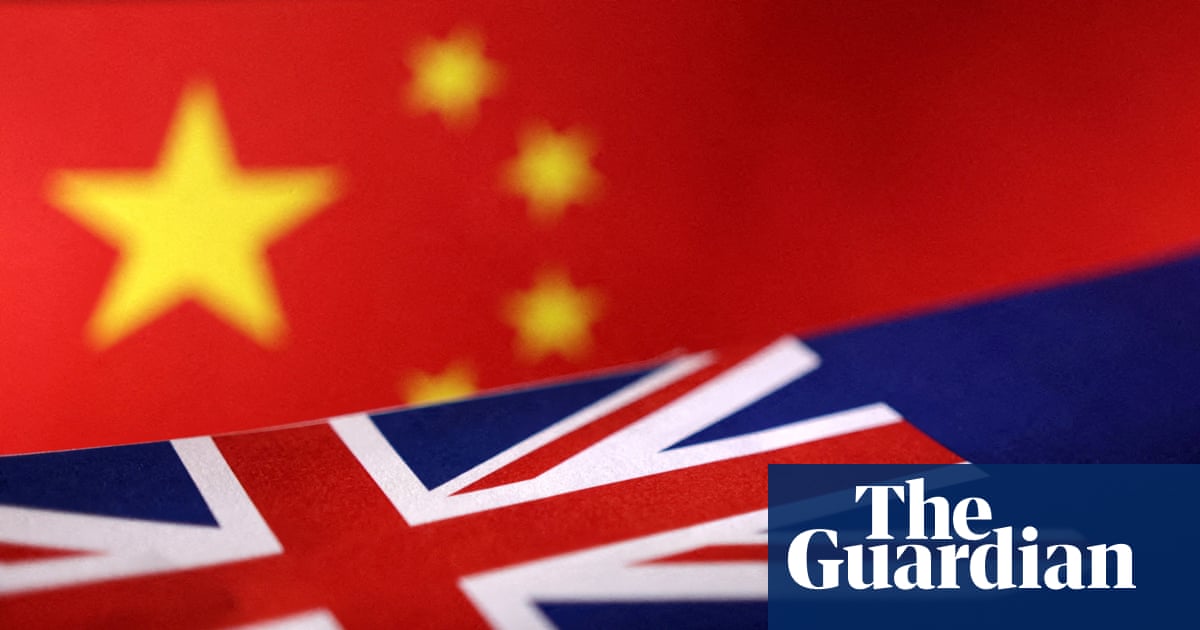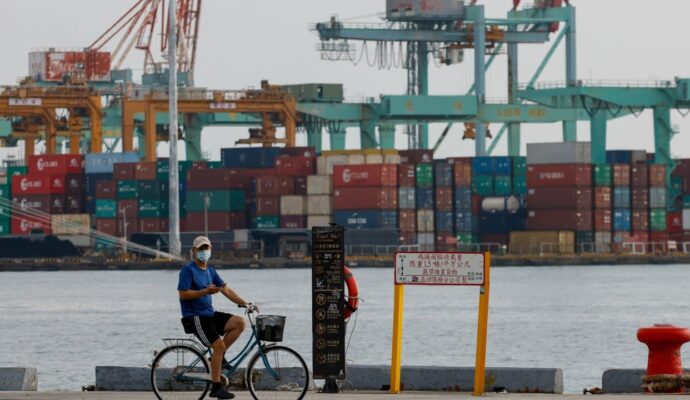
A controversial Buddhist organisation, at the centre of an alleged Chinese espionage case in Australia, has raised concerns about Beijing keeping tabs on Chinese diaspora overseas.
Guan Yin Citta Dharma Door is an international Buddhist organisation with multiple chapters in Australia. This month, a Chinese-born woman was charged with reckless foreign interference, accused of spying on the group’s Australian branches and its members on behalf of the Chinese Communist party’s intelligence organs. Australian police have said the investigation is ongoing and more people could be charged.
Guan Yin Citta practises Mahayana Buddhism, the most common type of Buddhism in China. But the organisation is controversial. News reports have detailed unusual and fringe beliefs the group promotes, and the history of its late founder, Master Jun Hong Lu, who died in 2021.
It has been banned in China, and people warned to steer clear of it.
How big is the group?
The organisation claims to have 10 million members worldwide, with 5 million in China, but the Chinese government says it is just 50,000. State media has accused it of being a cult with “evil theories”, and officials have vowed to crack down on it with “an iron fist”. In 2016, a Henan province follower was jailed for five years for printing 100,000 copies of an “unauthorised” Guan Yin Citta journal. Before his death, Lu had been banned from entering China.
Why is the Chinese government opposed to it?
It has been criticised by Buddhist groups in China, Hong Kong and Malaysia for allegedly distorting teachings, and Master Lu of abusing Buddhist scriptures and mantras and “using the illusion of supernatural powers to mislead believers”, according to a 2015 letter by 16 Malaysian Buddhist groups.
Nevertheless, Guan Yin Citta is legal in Australia, and while the controversies around the organisation muddy the waters a little, allegations of surveillance support claims about the CCP’s intolerance of religious groups outside its direct control.
Sign up: AU Breaking News email
John Fitzgerald, a historian of China, says that under the increasingly authoritarian rule of Xi Jinping, all things that could threaten the party in any way are seen as equivalent.
“There’s almost no calibration any longer,” Fitzgerald told the Guardian. “Anything that threatens the august and unrivalled authority of the party, no matter how trivial, is treated as a grave threat.”
Fitzgerald says the CCP looks at religion as a cultural signifier of ethnicity, something that has to be managed inside both China and diaspora communities who could influence the domestic population.
How are religions restricted within China?
Under the strict political rule of the Communist party, China is officially an atheist state. The government officially recognises Buddhism, along with Catholicism, Islam, Protestantism and Taoism, but the practise of those religions is strictly policed.
Buddhism, Taoism and some folk religions are generally treated less harshly than Islam and Christianity, analysts have noted, but believers across all religions have faced repression and persecution by the CCP – most notably the Muslim population in Xinjiang, and Tibetan Buddhists.
“The CCP leaders know that it is not easy to completely eradicate these religions out of China. (There are even CCP members who are secretly following these religions),” says Julie Yu-Wen Chen, a professor of Chinese Studies at the University of Helsinki.
“The best strategy is to sinicise them to make them suitable for the Chinese society and then to control and monitor the practices on the ground.”
after newsletter promotion
How does China use religion to monitor groups overseas?
The CCP will often use suitably sinicised practises for its soft diplomacy.
Much of it is driven by China’s state administration for religious affairs, and the Buddhist Association of China, which seek to work with Buddhists globally in pursuit of the CCP’s goals, often hosting international Buddhism conferences and making targeted foreign investments through Xi’s flagship overseas investment regime, the belt and road initiative.
“They recognise religion as subversive,” Fitzgerald says. “They’re not going to allow that subversion to happen in China or anything like that. But they will take full advantage of it in any other community.”
As China’s security apparatus expands, reaching across the world with extraterritorial security laws, extensive espionage and infiltration networks, and rising rates of transnational repression, it has become an unavoidable national security issue for other countries like Australia.
Religious groups and practitioners, dissidents, lawyers and journalists are among those frequently targeted. Foreign interference has affected bilateral relations. Last week Australia joined other nations in condemning China’s persecution of exiled Hong Kong pro-democracy activists. Meanwhile, across the world, Uyghurs have been harassed, surveilled and deported en masse to Xinjiang, and nations reacted with alarm to revelations of a network of secret overseas Chinese police stations.
“There’s far greater awareness now in Australia of the implications of this thing for national security,” Fitzgerald says.
Additional research by Jason Tzu Kuan Lu


